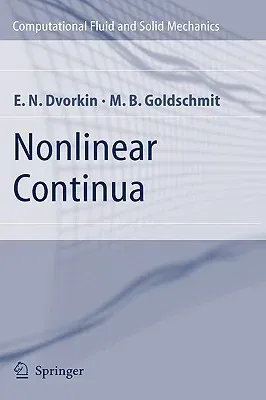This book develops a modern presentation of Continuum Mechanics,
oriented towards numerical applications in the ?elds of nonlinear
analysis of solids, structures and ?uids. Kinematics of the continuum
deformation, including pull-back/push-forward transformations between di
erent con?gurations; stress and strain measures; objective stress rate
and strain rate measures; balance principles; constitutive relations,
with emphasis on elasto-plasticity of metals and variational prin- ples
are developed using general curvilinear coordinates. Being tensor
analysis the indispensable tool for the development of the continuum
theory in general coordinates, in the appendix an overview of t-
soranalysisisalsopresented. Embedded in the theoretical presentation,
application examples are dev- oped to deepen the understanding of the
discussed concepts. Even though the mathematical presentation of the di
erent topics is quite rigorous; an e ort is made to link formal
developments with engineering ph- ical intuition. This book is based on
two graduate courses that the authors teach at the Engineering School of
the University of Buenos Aires and it is intended for graduate
engineering students majoring in mechanics and for researchers in the
?elds of applied mechanics and numerical methods. VIII Preface I am
grateful to Klaus-Jürgen Bathe for introducing me to Computational
Mechanics, for his enthusiasm, for his encouragement to undertake
challenges and for his friendship.

